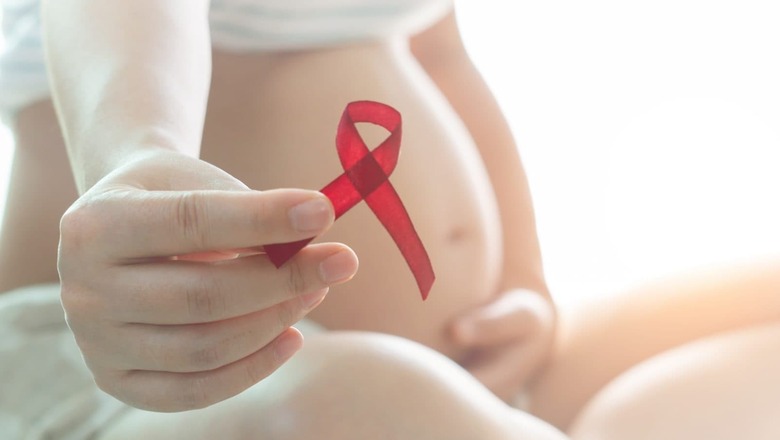
views
Andhra Pradesh has led the table in terms of highest number of HIV transmissions in India with 3, 18,814 followed by Maharashtra and Karnataka respectively. Over 17 lakh people contracted HIV in the country in the last 10 years due to unprotected intercourse, according to the latest data provided by National AIDS Control Organisation. (April 2022 data). Also, 15,782 people contracted HIV by transmission through blood and blood products and 4,423 contracted the disease by mother to child transmission, according to antibody testing data. On this World Aids day, we discuss if it possible for an AIDS infected person to conceive safely.
However, advances in HIV treatment and prevention allow HIV-positive couples to become pregnant without fear of transmitting the virus to their children. “Women living with HIV have been taking the anti-HIV drug safely throughout pregnancy for years in order to protect their children from HIV. However, with new medical advances and careful planning, it is now possible to have a safe and successful pregnancy while preventing HIV from passing to an HIV-negative partner or the baby. It is absolutely possible to conceive safely if you or your partner have HIV/AIDS and want to have children,” says Dr. Prasannalatha, Senior Obstetrician and Gynecologist, Kamineni Hospitals, Hyderabad.
There are ways for you to get pregnant that will limit a partner’s risk of HIV infection. It is advisable to ask your doctor about ways to get pregnant and still protect your partner.
“Everyone living with HIV should take ART medicines regularly to stay healthy. If you are thinking about becoming pregnant and are not taking HIV treatment, it is important that you begin, because this will lower your chances of passing the virus to your baby when you become pregnant,” says Dr. Ch. Manoj Kumar, Senior Consultant and General Physician, Manipal Hospitals, Vijayawada.
Also Read: Why is December 1 Celebrated as World AIDS Day? Theme, History and Significance
Women have a higher risk of infection during sex than men. If you do not have HIV but your male partner does, the risk of getting HIV while trying to get pregnant can be reduced but not totally eliminated. “Talk to your doctor about HIV medicine you can take (called pre-exposure prophylaxis or PrEP) to help protect you and your baby from HIV,” adds Dr Kumar.
Methods for a safe pregnancy
Invitro fertilization (IVF) and intrauterine insemination (IUI), both of which involve a technique known as sperm washing,’ has been the gold standard for assisting so-called discordant couples to conceive, but PrEP has become an enticing alternative for some in recent years.
However, you can pass HIV to your baby during pregnancy, labour, delivery, or breastfeeding. In an effort to provide the world with an HIV-free generation, the National AIDS Control Organization (NACO) has established Integrated counselling and testing centres (ICTC), as well as a programme for the prevention of parent-to-child transmission (PPTCT), which aims to prevent HIV infection from mother to child before, during, and after pregnancy. “Primordial prevention in adolescents and women of childbearing age through health education, primary prevention of HIV in pregnancy through counselling on safe sexual health practices, routine HIV screening in pregnancy, early detection and use of antiretroviral therapy as soon as it is diagnosed, and safe delivery practices are all important PPTCT strategies,” adds Dr Prasannalatha.
Read all the Latest Lifestyle News here




















Comments
0 comment